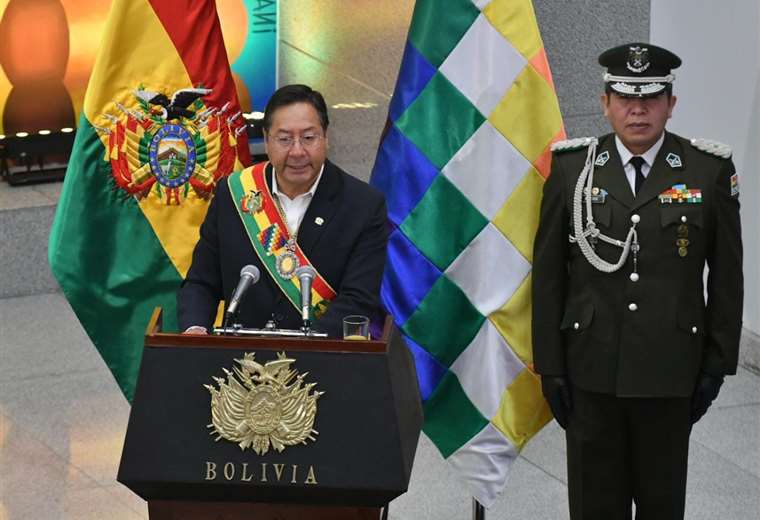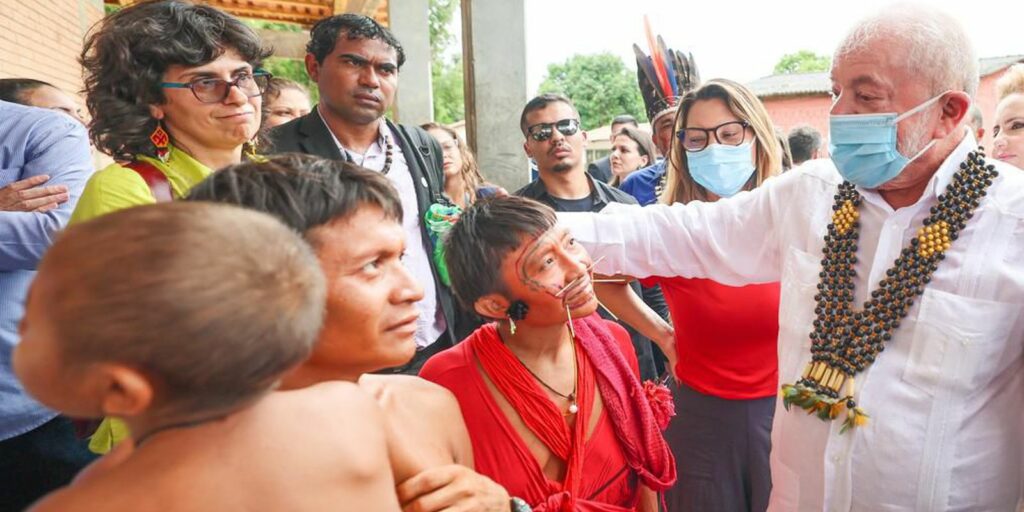January 22, 2023, 2:50 PM
January 22, 2023, 2:50 PM
“14 years, celebration among militants and without Evo. The scenery: A beautiful painting by Mamani Mamani”, headlines the analysis made by the economist Gonzalo Chávez on Luis Arce Catacora’s speech for the Day of the Plurinational State.
The evaluation begins with the statement about President Arce’s speech. For Chávez, the president gave a skewed reading of history, and that only brought water to the narrative of the Plurinational State. Likewise, he questions that the contribution of the Revolution of 52 and Popular Participation is ignored, among various facts.
“(Arce) was uncomfortable reading a speech that seemed taken from Rincón del Vago, which in turn had summarized Las Venas abiertas de América Latina. It is history from ideology. Later, much more comfortable, the narcissistic account of the economy began,” he said.
He affirmed that there is nothing beyond the extractivist, rentier, merchant and centralist economic model, as if it were the better than happened not only to Bolivia, but to humanity.
He said that the GDP growth rate mentioned in the speech, of 3.4%, is of course one of the highest in Latin America, but Arce did not return to the promise of a 5.1% increase in GDP, and that “We are still facing the statistical rebound.”
For Chávez, when highlighting that the inflation rate of 3.1%, praised as the lowest in Latin America, does not mention that this is achieved with the highest subsidies in the world, and with an exchange rate royal appreciated, that ate more than 12 billion dollars of the reserves international. “Of course, there is no mention that we are facing repressed inflation that has a gigantic fiscal cost,” he added.
Regarding the unemployment rate, highlighted as the lowest in the region, 4.3%, for Chávez, it was not said that the 80% of these occupations are precarious and of very poor quality, and they are in an informal sector where the free market reigns.
In the same way, he recognized that a high point in the speech had to do with the issue of import substitution with industrialization, in which Arce brought up data, such as the SI Bolivia project, through which they would have delivered to small businesses more than 2,600 million bolivianos, at an interest rate of 0.5% per year.
He said that, for the moment, it can only be affirmed that the Government efficiently executed these resources, but that when they give away the money, everyone goes in line, and that nothing can be said about the impact that this will have on the national productive fabric.
“There is not a single study that tells us if that money was used effectively and efficiently and created new industries. There are serious doubts that a substitution process works, when there is an appreciated real exchange rate, which allows imports from abroad much cheaper than producing it internally. The clear example of this is the significant increase in imports, legal and illegal, especially food,” he recalled.
Regarding the dozens of projects mentioned, including the production of lithium batteries, Chávez indicated that sand it’s about good wishesand that still you have to evaluate, in a couple of years Your results.
He questioned the wonderland of discourse, which contrasts with an increasingly complex reality, and that not a single word was said about the “rottenness of Bolivian justice”, nor about the state crisis, whose most serious symptom is Santa Cruz .
“Not a mention of more than ten years of public deficit. Nor about the growth of the external and internal debt, nothing about the brutal fall of the international reserves of the Central Bank from Bolivia, the smuggling that destroys the national industry, the structural decline of the natural gas sector, which has made us an importer of gasoline and diesel,” he concluded.















